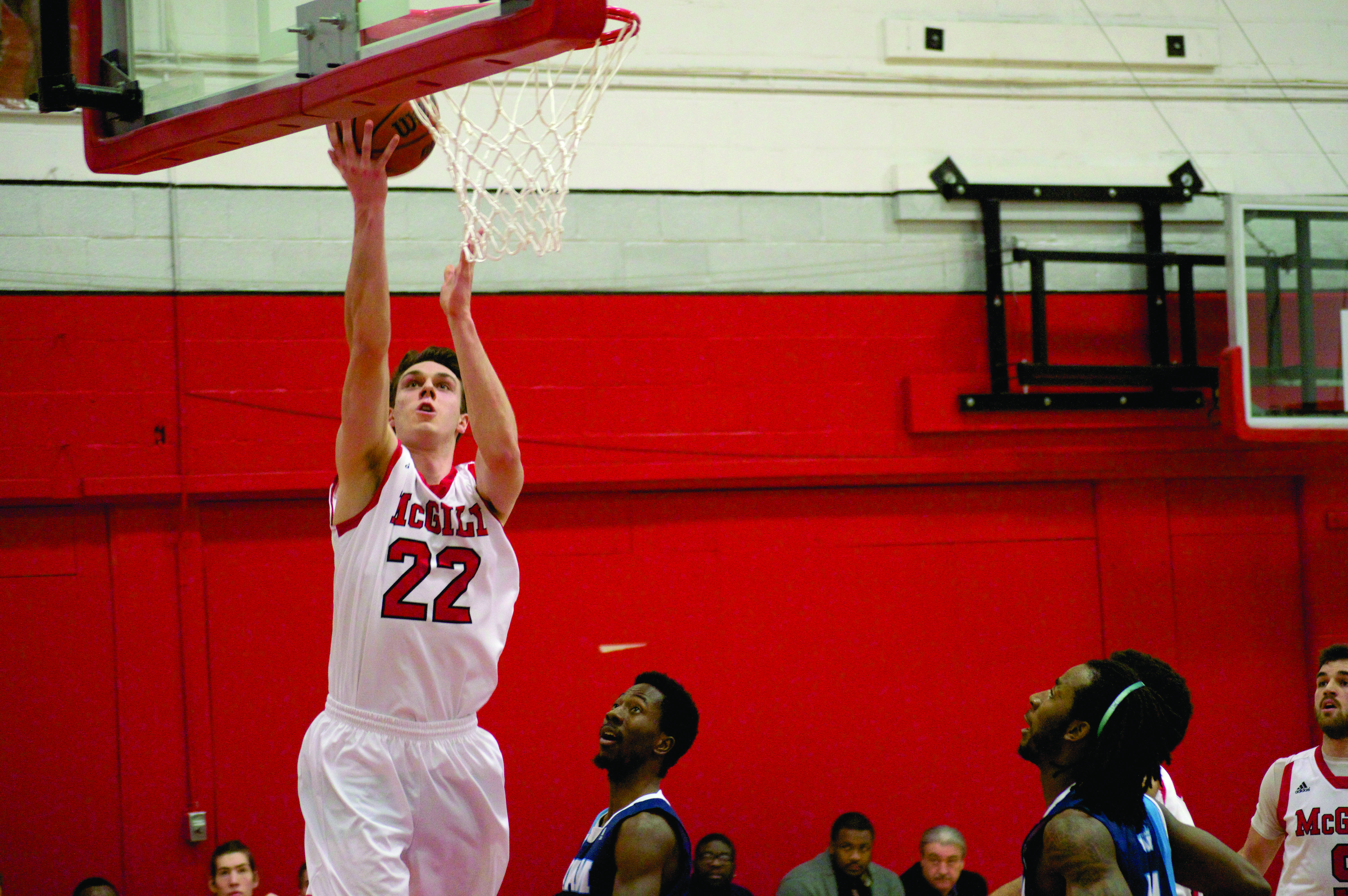After two straight losses in the CIS National Championships at Carleton University on Friday and Saturday—63-54 to the Victoria Vikes, and 75-59 to the Saskatchewan Huskies, respectively—the McGill Redmen finished seventh in the eight-team competition.
The game on Friday was a matchup between two of the toughest defences in the nation. Prior to Nationals, McGill had allowed an average 62.3 points per game—good for third-best in the country—while Victoria set the pace with a mere 60.2 points per game during the regular season. In a battle of defensive wills, it was the Vikes who held to the standard, holding the Redmen to just 27.6 per cent shooting from the field. McGill did not help itself at the charity stripe, getting to the line a mere seven times compared to the Vikes’ 27 free throw attempts.
“Their philosophy was to pack the paint, making it difficult to drive to the basket,” Redmen Head Coach David DeAveiro explained. “Our inability to make shots from the perimeter and attack the basket led to our inability to score.”
Freshman forward Francois Bourque led the way for McGill with 14 points and eight rebounds, while co-captain Simon Bibeau chipped in with 12 points en route to being named McGill’s game MVP.
On Saturday, the team’s shooting woes continued. The Redmen were once again held significantly below their season average of 74.1 points per game, finishing with 59 on just 27 per cent from the field. It didn’t help that the Redmen were fighting an uphill battle, after a dismal first quarter in which they dug themselves into a 19-point hole.
“Our team was disappointed in our play against Victoria in the first game,” DeAveiro said. “I felt we might have left our emotion and passion in the game before playing Saskatchewan. We just couldn’t make open shots [and …] I was little disappointed that we gave up 27 points in the first quarter.
If it weren’t for the emergence of freshman guard Regis Ivaniukas, who exploded off the bench for a career-high 17 points, the score might have been even more lopsided. Friday night’s contest was Bibeau’s last collegiate game. The senior guard posted 14 points on four-of-10 shooting.
Bibeau is the only player not slated to return to a team that had 10 rookies, three of whom were starters. Although the mood is dour given the expectations for the no. 5 ranked Redmen, the future is bright for the McGill Redmen only four years after DeAveiro has taken control of the program.
During this time, DeAveiro has created a blueprint for success in the RSEQ, one that preaches the importance of a collective team effort both defensively and offensively. This season, the Redmen led the conference in every significant defensive statistical category, except for blocks. The squad had no problem scoring either, leading the league in points, assists, field goal percentage, and three point percentage. However, now that McGill has established its dominance in the RSEQ, the program must take the next step and learn to compete on the national stage.
“I feel we need to continue to recruit the best basketball players in the country,” DeAveiro said. “We have a good nucleus of young players who received an education on what it’s like to play the best at Nationals. It’s a mind set, a focus, a determination that we are not satisfied with being labeled a very good young team.”









